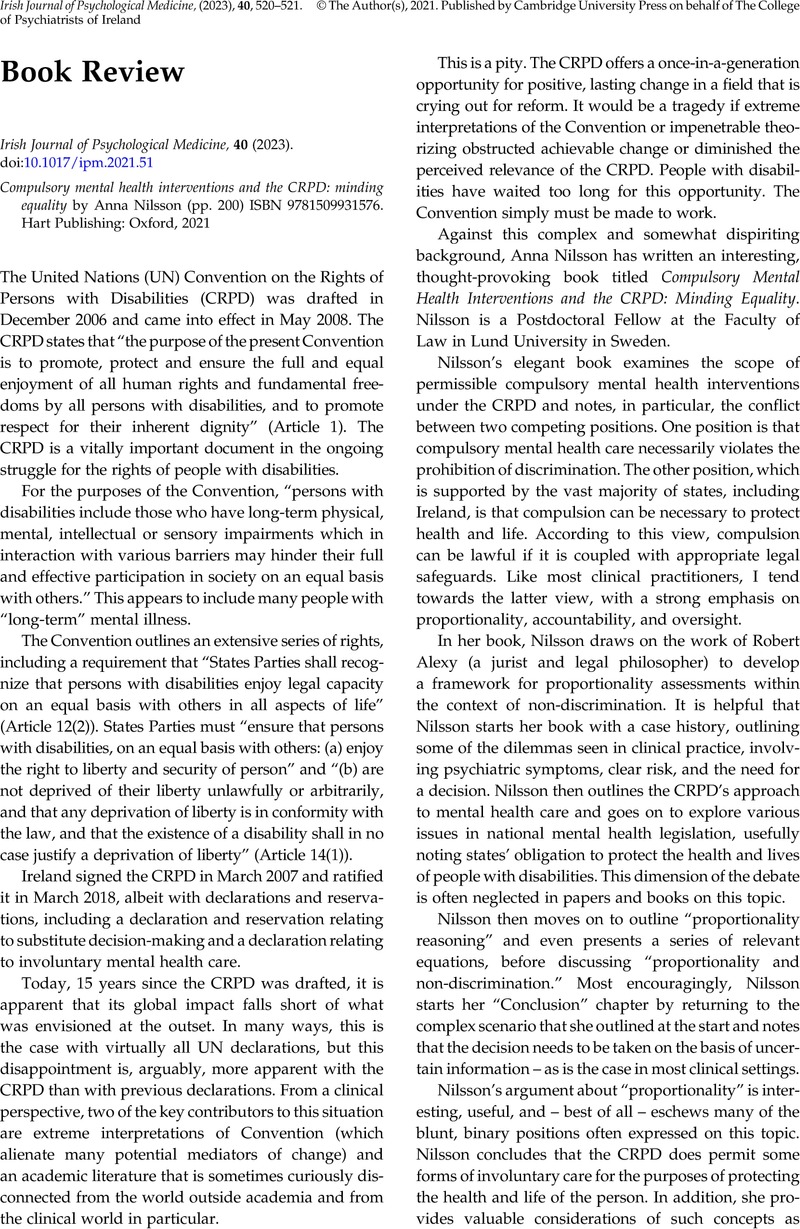No CrossRef data available.
Article contents
Compulsory mental health interventions and the CRPD: minding equality by Anna Nilsson (pp. 200) ISBN 9781509931576. Hart Publishing: Oxford, 2021
Review products
Compulsory mental health interventions and the CRPD: minding equality by Anna Nilsson (pp. 200) ISBN 9781509931576. Hart Publishing: Oxford, 2021
Published online by Cambridge University Press: 19 July 2021
Abstract
An abstract is not available for this content so a preview has been provided. Please use the Get access link above for information on how to access this content.

- Type
- Book Review
- Information
- Copyright
- © The Author(s), 2021. Published by Cambridge University Press on behalf of The College of Psychiatrists of Ireland


